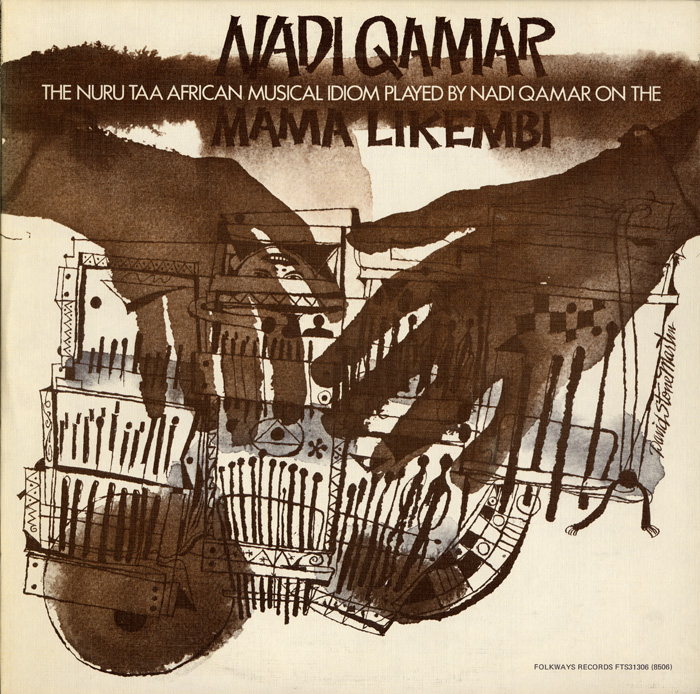
A record comprised entirely of mama likembi, a homemade instrument consisting of a grouping of African thumb pianos (aka likembe, mbira, or kalimba), meant to be played with the fingers rather than the thumbs. Before his conversion to Islam, Nadi Qamar was known professionally as Spaulding Givens, and you may know him as a revered jazz pianist and composer. Born in Cincinnati in 1917, of “Seminole, Cherokee, and African heritage,” he recorded extensively with Mingus in the early 50s and performed with Max Roach, Charlie Parker, Oscar Pettiford, Lucky Thompson, and Buddy Collette. His later career saw him focused on African instrumentation and ethnomusicology: he produced several large-scale performances of his own compositions, toured with Nina Simone, taught voice, piano, and orchestra at Bennington for seven years, and made a series of mama likembi records for Folkways,* some of which are highly instructional and technical audio guides.
The Nuru Taa African Musical Idiom is gorgeous. Under deft hands, Qamar’s mama likembi sounds like a harp, a classical guitar, a koto, and still like itself. Cloaked in a thick layer of roomtone, these recordings feel just as small and intimate as one might hope. You can hear she shifting of Qamar’s clothing, hear his hands brushing up against wood. And you can hear him shifting in and out of different tunings, “draw[ing] from many sources to project a contemporary Black expression,” as he writes in the liner notes. Though Qamar’s interest in music’s spiritual potential is plain, this is shy, discreet music, ideal for background music while working or even for meditation. It’s also excellent music to hole yourself up indoors with when it’s suddenly very cold outside.
*If you’re unfamiliar with Folkways, it’s a terrific catalogue to sift through if you have a free afternoon or ten. It was founded in 1948 to document “music, spoken word, and sounds from around the world” and was acquired by the Smithsonian Institute in 1987. Since then, the Smithsonian has kept all of their 2000+ titles available on their website.
typo: Folkways was founded in 1948, not 1984 🙂
whoa cool typo, thanks for catching!
Many thanks